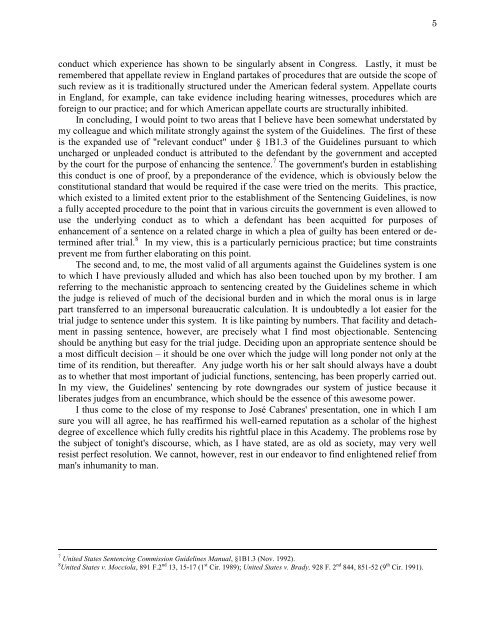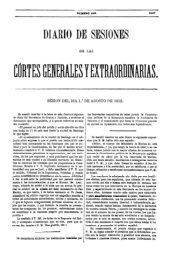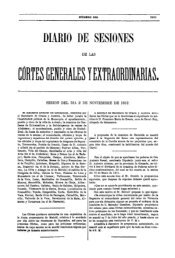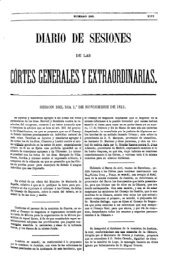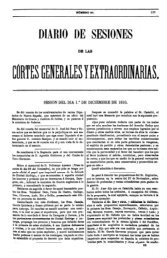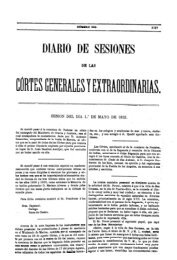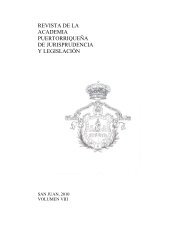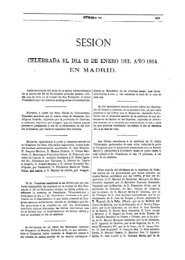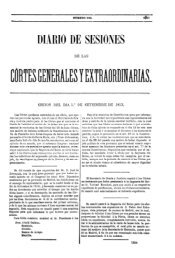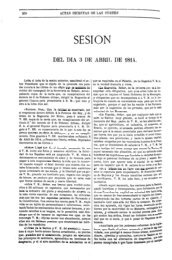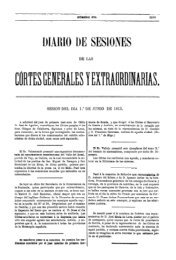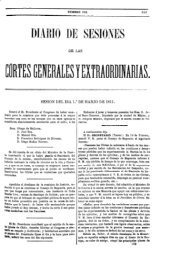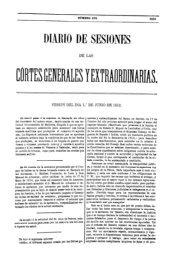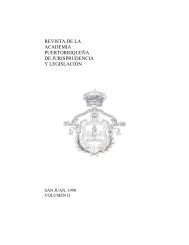5conduct which experience has shown to be singularly absent in Congress. Lastly, it must beremembered that appellate review in England partakes of procedures that are outsi<strong>de</strong> the scope ofsuch review as it is traditionally structured un<strong>de</strong>r the American fe<strong>de</strong>ral system. Appellate courtsin England, for example, can take evi<strong>de</strong>nce including hearing witnesses, procedures which areforeign to our practice; and for which American appellate courts are structurally inhibited.In concluding, I would point to two areas that I believe have been somewhat un<strong>de</strong>rstated bymy colleague and which militate strongly against the system of the Gui<strong>de</strong>lines. The first of theseis the expan<strong>de</strong>d use of "relevant conduct" un<strong>de</strong>r § 1B1.3 of the Gui<strong>de</strong>lines pursuant to whichuncharged or unplea<strong>de</strong>d conduct is attributed to the <strong>de</strong>fendant by the government and acceptedby the court for the purpose of enhancing the sentence. 7 The government's bur<strong>de</strong>n in establishingthis conduct is one of proof, by a prepon<strong>de</strong>rance of the evi<strong>de</strong>nce, which is obviously below theconstitutional standard that would be required if the case were tried on the merits. This practice,which existed to a limited extent prior to the establishment of the Sentencing Gui<strong>de</strong>lines, is nowa fully accepted procedure to the point that in various circuits the government is even allowed touse the un<strong>de</strong>rlying conduct as to which a <strong>de</strong>fendant has been acquitted for purposes ofenhancement of a sentence on a related charge in which a plea of guilty has been entered or <strong>de</strong>terminedafter trial. 8 In my view, this is a particularly pernicious practice; but time constraintsprevent me from further elaborating on this point.The second and, to me, the most valid of all arguments against the Gui<strong>de</strong>lines system is oneto which I have previously allu<strong>de</strong>d and which has also been touched upon by my brother. I amreferring to the mechanistic approach to sentencing created by the Gui<strong>de</strong>lines scheme in whichthe judge is relieved of much of the <strong>de</strong>cisional bur<strong>de</strong>n and in which the moral onus is in largepart transferred to an impersonal bureaucratic calculation. It is undoubtedly a lot easier for thetrial judge to sentence un<strong>de</strong>r this system. It is like painting by numbers. That facility and <strong>de</strong>tachmentin passing sentence, however, are precisely what I find most objectionable. Sentencingshould be anything but easy for the trial judge. Deciding upon an appropriate sentence should bea most difficult <strong>de</strong>cision – it should be one over which the judge will long pon<strong>de</strong>r not only at thetime of its rendition, but thereafter. Any judge worth his or her salt should always have a doubtas to whether that most important of judicial functions, sentencing, has been properly carried out.In my view, the Gui<strong>de</strong>lines' sentencing by rote downgra<strong>de</strong>s our system of justice because itliberates judges from an encumbrance, which should be the essence of this awesome power.I thus come to the close of my response to José Cabranes' presentation, one in which I amsure you will all agree, he has reaffirmed his well-earned reputation as a scholar of the highest<strong>de</strong>gree of excellence which fully credits his rightful place in this Aca<strong>de</strong>my. The problems rose bythe subject of tonight's discourse, which, as I have stated, are as old as society, may very wellresist perfect resolution. We cannot, however, rest in our en<strong>de</strong>avor to find enlightened relief fromman's inhumanity to man.7 United States Sentencing Commission Gui<strong>de</strong>lines Manual, §1B1.3 (Nov. 1992).8 United States v. Mocciola, 891 F.2 nd 13, 15-17 (1 st Cir. 1989); United States v. Brady, 928 F. 2 nd 844, 851-52 (9 th Cir. 1991).
LOS DERECHOS DE LOS ACUSADOS Y LA FACTURA MÁS ANCHA *Lcdo. Ernesto L. Chiesa Aponte **Con frecuencia se alu<strong>de</strong> a la “factura más ancha” <strong>de</strong> nuestra Constitución, especialmente laCarta <strong>de</strong> Derechos, en relación o comparación con la Constitución <strong>de</strong> los Estados Unidos. El entoncesJuez Presi<strong>de</strong>nte <strong>de</strong>l Tribunal Supremo <strong>de</strong> Puerto Rico, el jurista José Trías Monge,escribía a nombre <strong>de</strong>l tribunal, refiriéndose al propósito <strong>de</strong> nuestros constituyentes, que "sequería formular una Carta <strong>de</strong> Derechos <strong>de</strong> „factura más ancha‟ que la tradicional, que recogieseel sentir común <strong>de</strong> culturas diversas sobre nuevas categorías <strong>de</strong> <strong>de</strong>rechos”. 1 Esto se dijo en elcontexto <strong>de</strong>l alcance <strong>de</strong>l <strong>de</strong>recho a la intimidad bajo nuestra Carta <strong>de</strong> Derechos. 2 Pero entérminos más generales, el Tribunal Supremo ha expresado la “factura más ancha” en estostérminos: “Nuestra Constitución reconoce y conce<strong>de</strong> unos <strong>de</strong>rechos fundamentales con unavisión más abarcadora y protectora que la Constitución <strong>de</strong> Estados Unidos”. 3 Se dice, en consecuencia,que la interpretación que haga la Corte Suprema <strong>de</strong> los Estados Unidos en cuanto alalcance <strong>de</strong> un <strong>de</strong>recho constitucional <strong>de</strong>l ciudadano bajo la Constitución Fe<strong>de</strong>ral, no tiene que serparalela o similar a la interpretación que haga el Tribunal Supremo <strong>de</strong> Puerto Rico sobre el alcance<strong>de</strong> una protección o cláusula análoga o equivalente en la Carta <strong>de</strong> Derechos <strong>de</strong> PuertoRico. 4 Según reconocido por nuestro Tribunal Supremo, la Constitución <strong>de</strong> Puerto Rico goza <strong>de</strong>vitalidad in<strong>de</strong>pendiente, al igual que la <strong>de</strong> los estados fe<strong>de</strong>rados, lo que permite a ese tribunaladoptar “criterios constitucionales a la vanguardia <strong>de</strong> los enunciados en algunos <strong>de</strong> losdictámenes <strong>de</strong>l Tribunal Supremo <strong>de</strong> los Estados Unidos”. 5 Por otro lado, con frecuencia elTribunal Supremo <strong>de</strong> Puerto Rico adopta la interpretación que ha hecho la Corte Suprema <strong>de</strong> losEstados Unidos en relación con el alcance restrictivo <strong>de</strong> <strong>de</strong>terminada protección constitucional abase <strong>de</strong> que “nos parece que dicha interpretación es sumamente persuasiva y aplicable a nuestraConstitución”. 6 Como consecuencia <strong>de</strong> todo esto, tenemos que en los casos <strong>de</strong> proteccionesconstitucionales en nuestra Carta <strong>de</strong> Derechos con equivalente expreso o implícito en laConstitución <strong>de</strong> los Estados Unidos, se producen tres situaciones, a saber: (i) Declaración <strong>de</strong>“factura más ancha” por el Tribunal Supremo <strong>de</strong> Puerto Rico 7 ; (ii) Adopción expresa <strong>de</strong>l alcance<strong>de</strong>l <strong>de</strong>recho bajo la Constitución Fe<strong>de</strong>ral, al estimar el Tribunal Supremo <strong>de</strong> Puerto Rico que espersuasiva la interpretación <strong>de</strong> la Corte Suprema Fe<strong>de</strong>ral a la protección fe<strong>de</strong>ral equivalente, (iii)Incertidumbre, por no haberse planteado y resuelto la interrogante en el Tribunal Supremo <strong>de</strong>Puerto Rico.* Discurso pronunciado en la Escuela <strong>de</strong> Derecho <strong>de</strong> la Universidad <strong>de</strong> Puerto Rico en el acto <strong>de</strong> incorporación a la <strong>Aca<strong>de</strong>mia</strong>Puertorriqueña <strong>de</strong> Jurispru<strong>de</strong>ncia y Legislación, San Juan, 9 <strong>de</strong> febrero <strong>de</strong> 1995.** Académico <strong>de</strong> Número <strong>de</strong> la <strong>Aca<strong>de</strong>mia</strong> Puertorriqueña <strong>de</strong> Jurispru<strong>de</strong>ncia y Legislación.1 E.L.A. v. Hermandad <strong>de</strong> Empleados, 104 D.P.R. 436, 440 (1975).2 Sobre al “factura más ancha” <strong>de</strong> la Constitución <strong>de</strong> Puerto Rico en la zona <strong>de</strong> intimidad, Véase, Chiesa, Derecho Procesal <strong>de</strong>Puerto Rico y Estados Unidos, Vol. I, § 6.8(A), pp. 339-342 (Forum, 1991).3 López Vives v. Policía <strong>de</strong> Puerto Rico, 118 D.P.R. 219, 226-227 (1987).4 Así, aunque la sección 10 <strong>de</strong> nuestra Carta <strong>de</strong> Derechos se funda en la Enmienda Cuarta a la Constitución <strong>de</strong> los Estados Unidos,“su interpretación no ha sido, ni tiene necesariamente que ser, históricamente paralela en todo sentido con tal enmienda”.Pueblo v. Lebrón, 108 D.P.R. 324, 327 (1979).5 Pueblo v. Dolce, 105 D.P.R. 422, 428 (1976).6 Pueblo v. Rivera Collazo, 122 D.P.R. 408, 419 (1988).7 En algunas ocasiones, la “factura más ancha” se produce un tanto acci<strong>de</strong>ntalmente, sin que se rechace expresamente lainterpretación más restrictiva <strong>de</strong> la Corte Suprema Fe<strong>de</strong>ral. Ése es el caso, por ejemplo, <strong>de</strong>l alcance <strong>de</strong>l registro <strong>de</strong> un vehículocomo inci<strong>de</strong>ntal al arresto <strong>de</strong> su conductor, pues el Tribunal Supremo <strong>de</strong> Puerto Rico no aludió al caso fe<strong>de</strong>ral -New York v.Belton, 453 U.S. 454 (1981)- que <strong>de</strong>clara una protección mucho menor que la establecida en Pueblo v. Malavé González, 120D.P.R. 470 (1988). Queda la incertidumbre <strong>de</strong> si hubo un rechazo consciente a la interpretación fe<strong>de</strong>ral.
- Page 1 and 2: REVISTA DE LA ACADEMIA PUERTORRIQUE
- Page 3: 2enardecerá, en vez de corregir, l
- Page 9 and 10: través de la Ley, enardecerá, en
- Page 11 and 12: MEDICINE AND BIOLOGY: HOW FAR CAN T
- Page 13: unfair, in view of the total absenc
- Page 16 and 17: CONTESTACIÓN AL DISCURSO DEL HON.
- Page 18 and 19: la Oficina de Política sobre Cienc
- Page 20 and 21: códigos de ética existentes y los
- Page 22 and 23: REFORMING THE FEDERAL SENTENCING GU
- Page 24 and 25: narcotics and firearms, they tend t
- Page 26 and 27: Our faith in technology and plannin
- Page 28 and 29: single, all-powerful judge”. 17 W
- Page 30 and 31: CONTESTACIÓN AL DISCURSO DEL HON.
- Page 32 and 33: 3trafficking and gun-related offens
- Page 36 and 37: 2En este escrito trataré de establ
- Page 38 and 39: 4atender sus obligaciones económic
- Page 40 and 41: 6B. Juicio Público: Al igual que e
- Page 42 and 43: 8explicar la doctrina vigente. 47 A
- Page 44 and 45: 10tan serio disturbio emocional (
- Page 46 and 47: 12En Soto Ramos v. Superintendente
- Page 48 and 49: 14profesional y cómo ésta podría
- Page 50 and 51: 16Las implicaciones de esta exigenc
- Page 52 and 53: 18jurado. 116 Por otro lado, nuestr
- Page 54 and 55: 20forma rigurosa, de que la renunci
- Page 56 and 57: 22Tribunal Supremo ha seguido celos
- Page 58 and 59: 24protección es mayor que la que e
- Page 60 and 61: 264. Absuelto un acusado por determ
- Page 62 and 63: 28En Puerto Rico sólo cabe regular
- Page 64 and 65: 30B. Aplicación ex post facto de l
- Page 66 and 67: 32relación con el alcance 224 de l
- Page 68 and 69: 34se trata de una norma que comenz
- Page 70 and 71: 364) que la corroboración se relac
- Page 72 and 73: 38arresto. Bajo la Enmienda Cuarta,
- Page 74 and 75: 40razonable a la intimidad, no hay
- Page 76 and 77: 42Nuestra legislación permite la d
- Page 78 and 79: 44Derechos se dispone expresamente
- Page 80 and 81: 46Estados Unidos, adopta una posici
- Page 82 and 83: 2Aclarados esos puntos, coincido co
- Page 84 and 85:
La verdad es que los principios con
- Page 86 and 87:
EL DOLOR Y LA ANGUSTIA MENTALRamón
- Page 88 and 89:
3.7 8 9 10conocida y aceptada, hast
- Page 90 and 91:
5estímulo. Sin embargo, el punto e
- Page 92 and 93:
7de reconocimiento mundial, como ex
- Page 94 and 95:
dice que éste no distingue entre e
- Page 96 and 97:
11dos meses y medio más tarde cuan
- Page 98 and 99:
implicaciones negativas. Se debe de
- Page 100 and 101:
2naturaleza de los seres vivos, apl
- Page 102 and 103:
4de la clase dominante en la socied
- Page 104 and 105:
6su hora admitió ser identificado
- Page 106 and 107:
8cumpla la prestación que la norma
- Page 108 and 109:
10Encontramos la expresión todaví
- Page 110 and 111:
12La satisfacción de necesidades h
- Page 112 and 113:
14como aquí se propone, puede hace
- Page 114 and 115:
LOS DERECHOS HUMANOS FRENTE AL ESTA
- Page 116 and 117:
Como resultado, se ha llegado a un
- Page 118 and 119:
Yugoslavia, Georgia, Azerbaiján, A
- Page 120 and 121:
METASTESIS DE LA «RAZÓN» Y EL «
- Page 122 and 123:
fue quizás el producto de esa mism
- Page 124 and 125:
embargo, la corroboración de la ne
- Page 126 and 127:
VICuando Hegel, en su Phänomenolog
- Page 128 and 129:
del entendimiento (Verstehen) en el
- Page 130 and 131:
por el poder, por las estructuras y
- Page 132 and 133:
lo único que indica esta trasgresi
- Page 134 and 135:
Legislativa enmendó la Ley 53 orig
- Page 136 and 137:
Incluso, únicamente ofreció su t
- Page 138 and 139:
Al llegar a la gobernación en 1965
- Page 140 and 141:
Presidente del Tribunal Supremo y a
- Page 142 and 143:
Lamentablemente, vivimos en una soc
- Page 144 and 145:
1. El que en todas las acciones rel
- Page 146 and 147:
coordinación interagencial, con pa


